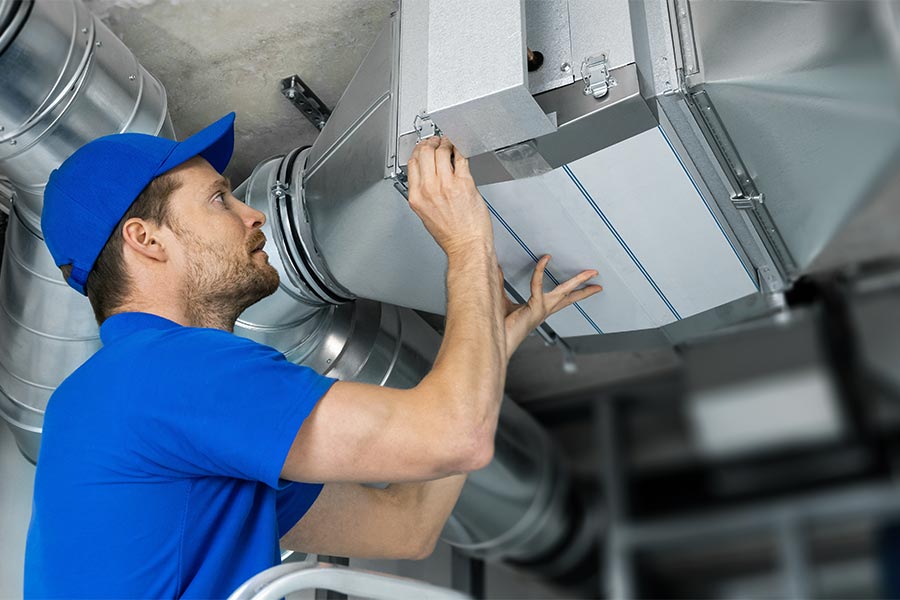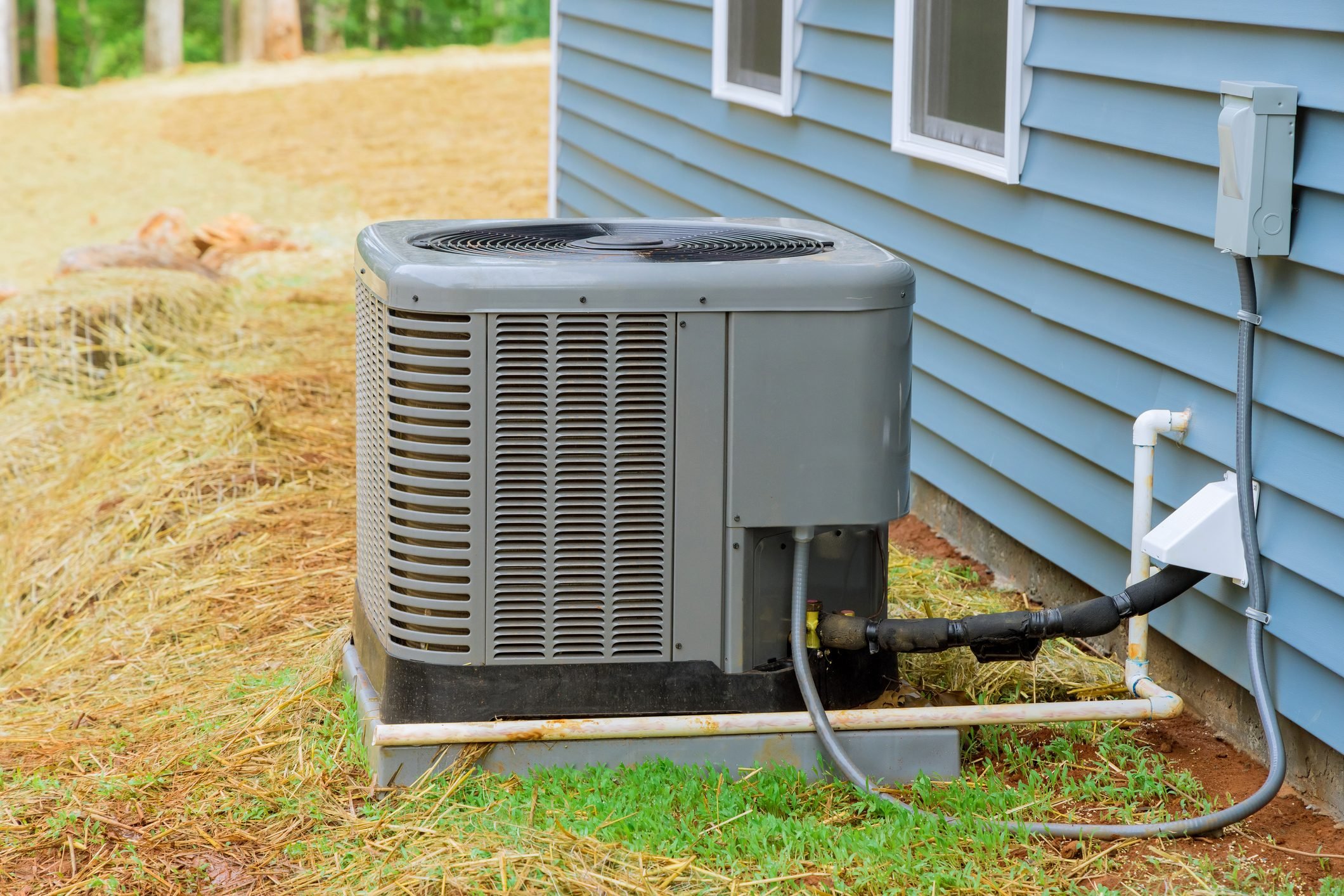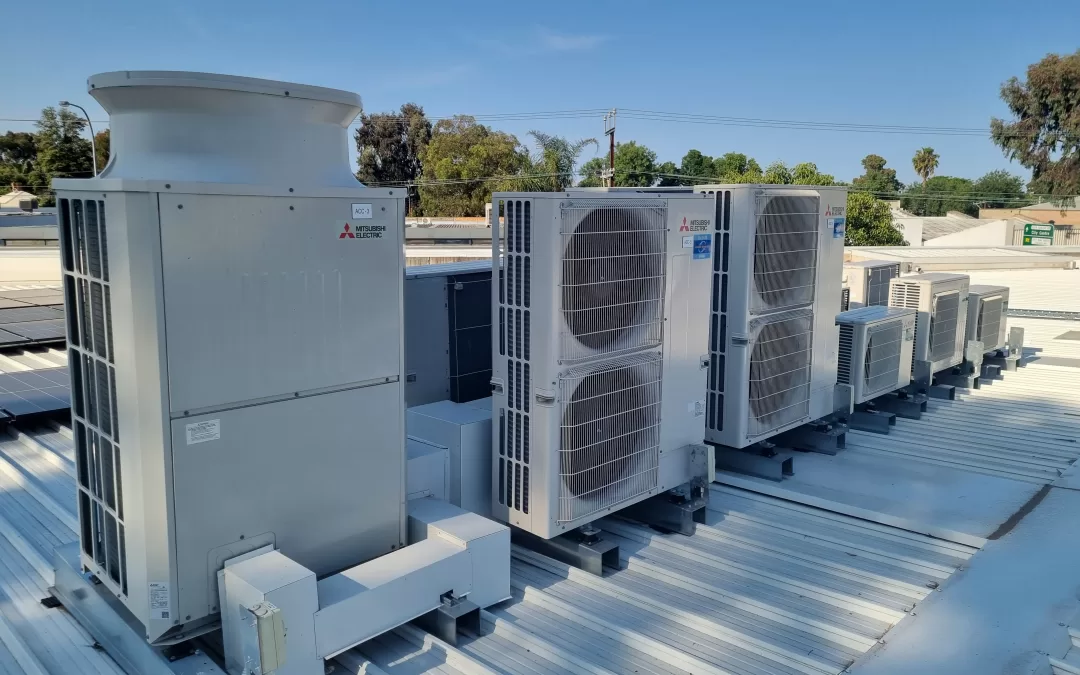Just How a Reputable A/c System Boosts Indoor Air Top Quality and Convenience
A trustworthy HVAC system is essential for maintaining indoor air quality and comfort. It regulates temperature level and humidity, producing a much healthier living atmosphere. Reliable air purification removes allergens and pollutants, while proper moisture levels protect against mold development. Normal upkeep warranties peak efficiency, improving system performance. Recognizing these components discloses exactly how they communicate to create a fresh ambience. The connection between A/c systems and overall health goes deeper than one might anticipate.
Understanding the Basics of A/c Solutions
Cooling and heating systems, fundamental for modern-day convenience, include air, air flow, and home heating conditioning components that interact to manage interior atmospheres. These systems are made to maintain suitable temperatures, making certain that areas stay comfy despite external climate condition. Burner, such as heaters or heatpump, supply warmth throughout cooler months, while a/c systems cool down rooms when temperatures increase.
Air flow plays a vital function, assisting in the blood circulation of fresh air and eliminating stale air, which helps in keeping a balanced atmosphere. Various sorts of cooling and heating systems exist, consisting of centralized and decentralized arrangements, each suited for various building dimensions and functions. Additionally, modern-day improvements have actually presented smart innovations, permitting for enhanced control over interior environment. Recognizing these basics makes it possible for individuals to value exactly how HVAC systems add to total health and comfort in business and domestic areas alike, laying the foundation for discussions on their effect on interior air high quality.
The Function of Air Filtration in Indoor Air High Quality
A notable element of maintaining indoor air quality works air filtration, which plays an essential role in getting rid of toxins and allergens from the environment. Heating and cooling systems outfitted with high-grade filters can record a variety of contaminants, including dust, plant pollen, pet dog dander, and mold and mildew spores. This filtering process substantially lowers the concentration of airborne particles, resulting in a cleaner and much healthier interior ambience.
In addition, normal upkeep of air filters is important to guarantee peak efficiency. Blocked or unclean filters can hinder airflow, reducing the system's effectiveness and possibly enabling pollutants to circulate within the room. By replacing or cleansing filters as suggested, homeowners can improve their a/c system's capability to supply fresh air.
Humidity Control and Its Influence On Convenience
While lots of might concentrate on temperature level guideline, humidity control is similarly essential for preserving comfort in indoor settings. High moisture levels can cause discomfort, making spaces really feel warmer than they really are, while reduced humidity can cause dryness, inflammation, and boosted susceptibility to breathing concerns. A trusted heating and cooling system plays a considerable duty in managing indoor moisture, guaranteeing that air is neither too completely dry neither too damp.
Optimum humidity levels commonly range from 30% to 50%, promoting a comfy atmosphere. When humidity is well-regulated, passengers experience improved thermal convenience, boosted indoor air quality, and minimized threats of mold development and allergen spreading. In addition, correct humidity control can secure furniture and architectural components from damages created by excessive moisture or dryness. Integrating efficient humidity monitoring into A/c systems is essential for promoting a healthy and balanced and positive interior setting favorable to wellness and efficiency.
The Value of Routine Maintenance
Normal upkeep of a/c systems is essential for guaranteeing peak efficiency and longevity. This positive approach not just decreases prospective malfunctions yet also improves energy effectiveness, which can lead to significant expense financial savings in time. Arranged evaluations allow technicians to identify and resolve problems before they rise right into expensive repair work, making certain the system operates efficiently.
In addition, regular maintenance includes cleaning or changing filters, inspecting refrigerant degrees, and checking air ducts, all of which add to optimal airflow and system efficiency. By maintaining the cooling and heating system, homeowners can also protect against excessive damage on components, expanding the overall lifespan of the system.
Additionally, a properly maintained heating and cooling system operates quietly and securely, lowering the risk of unsafe circumstances. To conclude, regular upkeep is a critical investment in both the efficiency of heating and cooling systems and the convenience of indoor environments, ultimately promoting a healthier home.
How Heating And Cooling Systems Reduce Allergens and Pollutants
Effective HVAC systems play an essential role in decreasing allergens and toxins within interior atmospheres, consequently improving general air quality. These systems use innovative filtration technologies that record dirt, plant pollen, mold and mildew spores, and pet dog dander, stopping them from distributing throughout the home. High-efficiency particle air (HEPA) filters are specifically effective, capturing as much as 99.97% of bits as little as 0.3 microns.

Power Performance and Its Advantages for Health and wellness
Energy-efficient HVAC systems not just reduce energy intake however also have considerable health benefits for owners. By enhancing power use, these systems can keep consistent indoor temperature levels, which assists prevent the growth of mold and mildew and mildew. Controlling moisture degrees is necessary for respiratory health and wellness, as excess dampness can aggravate allergies and bronchial asthma. Furthermore, energy-efficient systems usually incorporate innovative filtering modern technologies that improve air high quality by getting rid of air-borne bits and pollutants, even more improving total well-being.
Additionally, lower power consumption suggests lowered discharges from nuclear power plant, adding to cleaner exterior air quality, which indirectly supports the health of citizens. With an emphasis on sustainability, energy-efficient HVAC systems advertise a much healthier living environment. By purchasing such systems, homeowners not just minimize energy expenses however also make a significant dedication to the wellness of their households and areas. Ultimately, energy effectiveness in a/c systems cultivates a much healthier indoor atmosphere for all.
Enhancing Convenience With Smart Innovation Assimilation
As smart technology remains to progress, its combination into heating and cooling systems considerably improves interior convenience. Smart thermostats, for example, allow individuals to customize home heating and cooling schedules based upon their day-to-day routines, ensuring ideal temperature levels when people are home. These gadgets can find out choices in time, adjusting setups automatically for maximum convenience.
Additionally, smart sensing units keep track of interior air high quality and humidity levels, providing real-time comments this contact form that aids maintain a healthy and balanced setting. By communicating with a/c units, these sensors can prompt adjustments to air movement and temperature, making sure constant comfort.
Mobile applications more equip users, allowing remote of cooling and heating setups from anywhere, consequently providing comfort and flexibility.
Regularly Asked Questions

Exactly How Can I Inform if My A/c System Is Effective?
To establish heating and cooling performance, one can check power costs for anomalies, check for unusual noises, display temperature level consistency, assurance correct airflow, and routine routine upkeep. These aspects collectively indicate the system's operational efficiency and efficiency.
What Indicators Suggest Poor Indoor Air Quality?
Indications of inadequate indoor air quality consist of relentless odors, excessive dust buildup, raised allergy signs, visible mold and mildew growth, and rising and fall humidity levels. These signs commonly recommend that air flow or air filtration systems may be inadequate or malfunctioning.
Can an A/c System Assist With Family Pet Dander?

Exactly how Typically Should I Change My Air Filters?
Air filters need to typically be replaced every 1 to 3 months, relying on usage and interior air quality. HVAC experts. Regular replacement helps maintain efficient air flow and reduces dirt, allergens, and various other fragments in the home setting
What Are the Expenses of HVAC System Installation?
The expenses of heating and cooling system installation usually range from $3,000 to $7,000, relying on aspects such as system kind, home dimension, hop over to these guys and regional labor prices. Added functions might boost overall expenses substantially.
A trustworthy A/c system is vital for preserving interior air top quality and comfort. Heating and cooling systems, fundamental for modern convenience, include air, home heating, and ventilation conditioning components that function with each other to regulate interior atmospheres. Effective Cooling and heating systems play an essential duty in decreasing allergens and contaminants within interior settings, consequently boosting total air quality. A Cooling and heating system can significantly lower family pet dander by using sophisticated filtering systems and routine upkeep (HVAC experts). The expenses of Cooling and heating system setup typically vary from $3,000 to $7,000, depending on variables such as system kind, home size, and neighborhood labor description rates